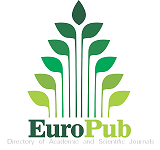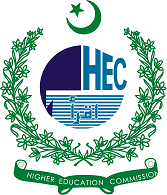Role of New Media in Good Governance: A Study of Disaster Management Authorities of Pakistan
DOI:
https://doi.org/10.58932/MULA0029Keywords:
New Media, Good Governance, Disaster Management AuthoritiesAbstract
The research focuses on the use of social media platforms, specifically Twitter and Facebook, by Pakistan's Disaster Management Authorities during climate disasters in 2022, Murree Snow Storm, Karachi Monsoon rainfall, and floods. Thematic content analysis was conducted to evaluate the type of information disseminated by the National Disaster Management Authority (NDMA) and Provincial disaster management authorities of Punjab, Sindh, KPK, and Baluchistan on their Twitter and Facebook. In the light of managerial model, this study indicated that the information posted on the disaster management authorities' social media handles can be categorized into five categories: weather updates, aid distribution, rescue operations, precautionary measures, and other information. Notably, most of this information was posted after the occurrence of the respective natural disasters. The Punjab Disaster Management Authority performed commendably during the floods, actively posting about rescue operations and aid efforts. Similarly, the Sindh Disaster Management Authority demonstrated increased activity during the Karachi Monsoon rainfall, sharing updates on weather, aid, and rescue operations. During the Murree Snowstorm, both the NDMA and Punjab Disaster Management Authority informed the public about weather updates, rescue operations, and aid initiatives for the affected citizens. Likewise, the NDMA and PDMA’s posted warnings, precautions, and aid-related information during the floods. However, their overall performance indicated that the disaster management authorities are still in the preliminary stages of implementing e- governance to attain good governance. Not to mention, NDMA and PDMA’s cater to the outcomes of disaster rather than working on the measures to minimize the factors for disaster.
References
Acharya, N. (2022). Role of right to information in promotion of good governance. International Journal of Law Management and Humanities, 5(1), 52.
Ahmad, D., & Afzal, M. (2021). Impact of climate change on pastoralists’ resilience and sustainable mitigation in Punjab, Pakistan. Environment, Development and Sustainability, 23(8). https://doi.org/10.1007/s10668-020-01119-9
Ahmad, D., & Afzal, M. (2022). Flood risk public perception in flash flood-prone areas of Punjab, Pakistan. Environmental Science and Pollution Research, 1-13. https://doi.org/10.1007/s11356-022-19646-5
Akpan-Obong, P. I., Trinh, M. P., Ayo, C. K., & Oni, A. (2022). E-Governance as good governance? Evidence from 15 West African countries. Information Technology for Development, 1-20. https://doi.org/10.1080/02681102.2022.2123770
American Meteorological Society. (2023). Glossary of Meteorology: Weather. In American Meteorological Society Glossary. Retrieved May 2, 2023, from https://glossary.ametsoc.org/wiki/Weather
Anderson, M. R. (2010). Community psychology, political efficacy, and trust. Political Psychology, 31(1), 59-84. https://doi.org/10.1111/j.1467-9221.2009.00734.x
Azhar, A. (2022). Disaster Management Reforms in Pakistan. In Public Sector Reforms in Pakistan (pp. 329-348). Palgrave Macmillan, Cham. https://doi.org/10.1007/978-3- 030-96825-0_14
Banerjee, A., Duflo, E., Imbert, C., Mathew, S., & Pande, R. (2020). E-governance, accountability, and leakage in public programs: Experimental evidence from a financial management reform in India. Journal of Applied Economics, 12(4), 39-72. https://doi.org/10.1257/20180302
Barnes, C., & Gill, D. (2000). Declining government performance? Why citizens don’t trust government. New Zealand: State Services Commission.
Bertot, J. C., Jaeger, P. T., & Grimes, J. M. (2010). Using ICTs to create a culture of transparency: E-government and social media as openness and anti-corruption tools for societies. Government Information Quarterly, 27(3), 264-271.https://doi.org/10.1016/j.giq.2010.03.001
Bowen, S. A. (2016). Clarifying ethics terms in public relations from A to V, authenticity to virtue. Public Relations Review, 42, 564–572. https://doi.org/10.1016/j.pubrev.2016.03
Braam, D. H., Chandio, R., Jephcott, F. L., Tasker, A., & Wood, J. L. (2021). Disaster displacement and zoonotic disease dynamics: The impact of structural and chronic drivers in Sindh, Pakistan. PLOS Global Public Health, 1(12). https://doi.org/10.1371/journal.pgph.0000068
Chadwick, A., & May, C. (2003). Interaction between States and Citizens in the Age of the Internet: “e‐Government” in the United States, Britain, and the European Union. Governance, 16(2), 271-300. https://doi.org/10.1111/1468-0491.00216
C.H. (2016). Public health implications of social media use during natural disasters, environmental disasters, and other environmental concerns. Natural Hazards, 83, 729- 760.
Denisova, A. (2022). Viral journalism. Strategy, tactics and limitations of the fast spread of content on social media: Case study of the United Kingdom quality publications. Journalism. https://doi.org/10.1177/14648849221077749
Diakakis, M., Priskos, G., & Skordoulis, M. (2018). Public perception of flood risk in flash flood prone areas of Eastern Mediterranean: The case of Attica Region in Greece. International Journal of Disaster Risk Reduction, 28, 404-413. https://doi.org/10.1016/j.ijdrr.2018.03.018
Fang, J., Hu, J., Shi, X., & Zhao, L. (2019). Assessing disaster impacts and response using social media data in China: A case study of 2016 Wuhan rainstorm. International Journal of Disaster Risk Reduction, 34, 275-282. https://doi.org/10.1016/j.ijdrr.2018.11.027
Grant, G. & Chau, D. (2005), Developing a generic framework for e-government. Journal of Global Information Management, 3(1), 1-30.
Houston, D. J., & Harding, L. H. (2013). Public trust in government administrators: Explaining citizen perceptions of trustworthiness and competence. Public Integrity, 16(1), 53-76. DOI: 10.2753/PIN1099-9922160103 https://doi.org/10.1002/pa.1967
Idris, I. (2021). Areas and population groups in Pakistan most exposed to combined effects of climate change, food insecurity and COVID-19. https://doi.org/10.19088/K4D.2021.058
Imam, M.A. et al. (2023) ‘Contextualizing research approaches: The role of Western and Islamic philosophies in shaping methodology and knowledge creation’, Al-Irfan, 8(16), pp. 69–90.
Kainat, K. (2022). Information literacy competencies and social media as a source of information for integration of newcomers.
Khan, K., Zaki, H., Faizan, A., Ali, S. A., & Alvi, U. (2020, February). Elucidation of e- governance in Pakistan: A roadway to a finer State. In 2020 International Conference on Information Science and Communication Technology (ICISCT) (pp. 1-6). IEEE.
Lean, O.K., Zailani, S., Ramayah, T. and Fernando, Y. (2009), Factors influencing intention to use e-government services among citizens in Malaysia. International Journal of Information Management, 29(6), 458-75.
https://doi.org/10.1016/j.ijinfomgt.2009.03.012
Linde, J., & Peters, Y. (2020). Responsiveness, support, and responsibility: How democratic responsiveness facilitates responsible government. Party Politics, 26(3), 291-304. https://doi.org/10.1177/1354068818763986
Lovari, A., & Bowen, S. A. (2020). Social media in disaster communication: A case study of strategies, barriers, and ethical implications. Journal of Public Affairs, 20(1), e1967.
Mansoor, M. (2021). Citizens' trust in government as a function of good governance and government agency's provision of quality information on social media during COVID-19. Government Information Quarterly, 38(4), 101597. https://doi.org/10.1016/j.giq.2021.101597
Matheus, R., Janssen, M., & Janowski, T. (2021). Design principles for creating digital transparency in government. Government Information Quarterly, 38(1), 101550. https://doi.org/10.1016/j.giq.2020.101550
Memon, S., Mahar, S., Dhomeja, L. D., & Pirzado, F. (2015, June). Prospects and challenges for social media in Pakistan. In 2015 International Conference on Cyber Situational Awareness, Data Analytics and Assessment (CyberSA) (pp. 1-5). IEEE. Doi: 10.1109/CyberSA.2015.7166124.
Meo, M. Z. S., Meo, M. O. S., & Meo, A. S. (2022). Snowfall and carbon monoxide poisoning in Murree Pakistan. Pakistan Journal of Medical Sciences, 38 (8). https://doi.org/10.12669/pjms.38.8.6936
Mergel, I. (2013). A framework for interpreting social media interactions in the public sector. Government Information Quarterly, 30(4), 327-334. https://doi.org/10.1016/j.giq.2013.05.015
Merriam-Webster. (2023). Aid. In Merriam-Webster.com dictionary. Retrieved May 2, 2023, from https://www.merriam-webster.com/dictionary/aid
Merriam-Webster. (2023). Rescue Operation. In Merriam-Webster.com dictionary. Retrieved May 2, 2023, from https://www.merriam-webster.com/dictionary/rescue%20operation
Merriam-Webster. (n.d.). Update. In Merriam-Webster.com dictionary. Retrieved January 22, 2023, from https://www.merriam-webster.com/dictionary/update
Millard, J. (2006), User attitudes to e-government citizen services in Europe. International Journal of Electronic Government Research, 2(2), 49-58.
Mimicopoulos, M., Kyj, L., Sormani, N., Bertucci, G., & Qian, H. (2007). Public governance indicators: A literature review. New York, NY: United Nations Department of Economic and Social Affairs.
Moghadas, M., Fekete, A., Rajabifard, A., & Kötter, T. (2023). The wisdom of crowds for improved disaster resilience: a near-real-time analysis of crowdsourced social media data on the 2021 flood in Germany. GeoJournal, 1-27.
Morgeson, F. & Mithas, S. (2009). Does e-government measure up to e-business? Comparing end user perceptions of US federal government and e-business websites. Public Administration Review, 69(4), 740-52.
Noureen, A., Aziz, R., Ismail, A., & Trzcinski, A. P. (2022). The impact of climate change on waterborne diseases in Pakistan. Sustainability and Climate Change, 15(2), 138- 152. http://doi.org/10.1089/scc.2021.0070
Novita, D., Malela, M., Susila, A., Fadhil, M., Suryani, E., & Yunus, M. (2022, February). Implementation of good governance principles in the public information disclosure policy. In Proceedings of the First International Conference on Democracy and Social Transformation, ICON-DEMOST 2021, September 15, 2021, Semarang, Indonesia .http://dx.doi.org/10.4108/eai.15-9-2021.2315580
Ochani, S., Aaqil, S. I., Nazir, A., Athar, F. B., Ochani, K., & Ullah, K. (2022). Various health- related challenges amidst recent floods in Pakistan; strategies for future prevention and control. Annals of Medicine and Surgery, 82.
https://doi.org/10.1016/j.amsu.2022.104667
Olley, W. O., Akpor, E. D., Harcourt-Whyte, D., Omosotomhe, S. I., Anikwe, A. P., Frederick, E. K., & Umolu, P. E. (2022). Electoral Violence and Voter Apathy: Peace Journalism and Good Governance In Perspective. Corporate Governance and Organizational Behavior Review, 6(3), 112–119. https://doi.org/10.22495/cgobrv6i3p10
Palen, L., & Hughes, A. L. (2018). Social media in disaster communication. Handbook of disaster research, 497-518.
Pershad, Y., Hangge, P. T., Albadawi, H., & Oklu, R. (2018). Social medicine: Twitter in healthcare. Journal of Clinical Medicine, 7(6),121. https://doi.org/10.3390/jcm7060121
Polit, D. F., & Beck, C. T. (2021). Nursing research: Generating and assessing evidence for nursing practice (11th Ed.). Wolters Kluwer.
Qureshi, H. H. (2022). Sequestering And Rhetoric: Cda on natural disaster in Pakistani print media discourse. Harf-o-Sukhan, 6(1), 12-22. Retrieved from http://www.harf-o- sukhan.com/index.php/Harf-o-sukhan/article/view/261
Rahim, A., Akintunde, G. O., Oguntoyinbo, C. A., Obanla, R. O., & Aremu, N. S. (2017). Transformative potentials of e-governance: The intrinsic role of information and communication technology in reinvigorating public service delivery in Nigeria. In Covenant University Conference on e-Governance in Nigeria (pp. 65-79).
Rana, I. A., Asim, M., Aslam, A. B., & Jamshed, A. (2021). Disaster management cycle and its application for flood risk reduction in urban areas of Pakistan. Urban Climate, 38. https://doi.org/10.1016/j.uclim.2021.100893
Raoof, R., Rasool, R., Sattar, J., Shami, U. T., Murtaza, G., Ashraf, M., & Malik, A. (2021). Evaluation of disaster risk management structure of Pakistan with emphasis on man- made disaster. PalArch's Journal of Archaeology of Egypt/Egyptology, 18(09), 1281- 1294.
Rodrigueza, R. C., & Estuar, M. R. J. E. (2018, August). Social network analysis of a disaster behavior network: An agent-based modeling approach. In 2018 IEEE/ACM International Conference on Advances in Social Networks Analysis and Mining (ASONAM) (pp. 1100-1107). IEEE.
Saroj, A., & Pal, S. (2023). E-governance through social media: an analysis on the use of Facebook and Twitter by Indian Government. Electronic Government, 19(3), 304-331. https://doi.org/10.1504/EG.2023.130585
Sattar, M. A., & Nadeem, H. (2022). Recurring battle with Dengue; post heavy monsoon in Pakistan. Annals of Medicine and Surgery, 82. https://doi.org/10.1016/j.amsu.2022.104400
Shafritz, J. M., Russell, E. W., & Borick, C. (2015). Introducing public administration. Routledge.
Suri, P. K. (2022). Effectiveness of strategy implementation and e-governance performance.Evaluation and Program Planning, 92. https://doi.org/10.1016/j.evalprogplan.2022.102063
Wise, J. (2022). Pakistan: UN renews appeal to avert public health disaster in wake of climate induced floods. https://doi.org/10.1136/bmj.o2407
Zhang, C., Fan, C., Yao, W., Hu, X., & Mostafavi, A. (2019). Social media for intelligent public information and warning in disasters: An interdisciplinary review. International Journal of Information Management, 49, 190-207. https://doi.org/10.1016/j.ijinfomgt.2019.04.004




